US Gambling Laws | Guide To Gambling Laws in the USA
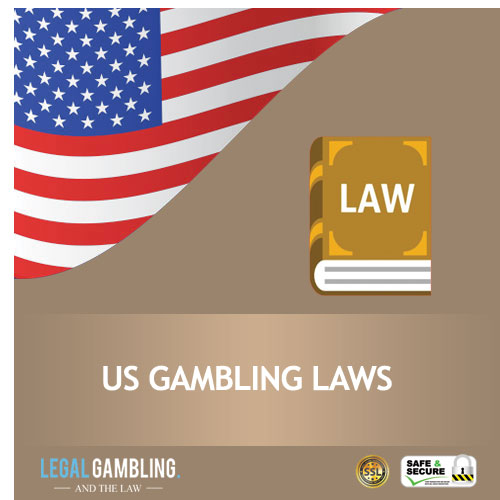
In the text below, you will find information about:
- The history of gambling in the US
- The vital US gambling laws and acts
- The timeline of notable gambling acts and regulations
- How is gambling regulated in the US
- Online gambling laws
For the story to be complete, I decided to start this journey with a brief history lesson and lead you straight to the current situation regarding gambling laws in the US.
The History of Gambling in the US
-
Ancient Times
The first form of gambling, according to archaeologists, are dice games, as they have been excavated in North and South America, as well as in Egypt and the Far East.
They even appear in the New Testament as a way to decide which Roman soldier should get the robe of Jesus.
-
Precolonial America
The popularity of dice games continued in the Precolonial period as well. Long before the colonisation of North America, games of chance represented an essential part of Native Americans’ tribal ceremonies and celebrations.
Also, a bowl game originated at this time, and it had a different name depending on the tribe that used to play it. It was known as “Hubbub” by the Arapaho and New England tribes, while a variation of it was called “Monshimout” by the Cheyenne.
It consisted of a bowl or a basket in which they put bones or plum stones all carved in a different way. People could place a bet before the beginning of a game, and after they throw all the pieces out, the combination of markings would decide the winner. In some way, it could be said that this is a precursor to today’s Lotto.
-
The Colonial Era
Since in Europe all sorts of gambling started thriving in the medieval times despite the attempts of the kings to prevent it, the colonisers brought it to the New World.
In some parts of New England, the first bets included the ones on horse racing, cockfighting and bull baiting.
The lottery created by King James I of England had been used to provide funds for the first permanent British settlement in North America, and was afterward used for funding the building of roads, towns, schools, and hospitals.
However, many colonists objected to gambling in general, which resulted in the Continental Congress of the North American colonies issuing the Articles of Association, intending to stop all the gambling associated activities.
-
The Nineteenth Century
Again, in the 19th century, gambling had been smothered and then brought back to life many times before all the lotteries were officially closed by 1900.
The reason for this was predominantly the conservative point of view that characterised all kinds of gambling as immoral and unethical.
-
The Twentieth Century
The 20th century was significant for gambling in the US since that was the time when casino gambling became legal in Nevada in 1931. After World War II, Las Vegas started attracting Hollywood celebrities and tourists from around the world.
Finally, the Nevada Gaming Control Board was created in 1955, followed by establishing the Nevada Gaming Commission four years later.
After Nevada’s success, more and more countries have worked their way to the gambling world, as they’ve seen the commercial potential it brought along. The mid-90s were crucial for Internet gambling sites, too. Most of them were based in the Caribbean, and the number went from 50–60 to 600–700 in a few years..
-
The Twenty-First Century
For Native American tribes, this was a crucial moment since they were restricted to gamble before 2000.
From this year on, they were allowed to play lottery games, slot machines, and certain card games on their lands. Finally, the US states started largely considering the reform of gambling regulations and the future of gambling in the country.
The Vital US Gambling Laws and Acts
The Interstate Wire Act
The act passed in 1961 with the intention to make placing bets by a “wire communication facility” illegal. The reason the Department of Justice created this act was to prevent organised groups from transmitting bets, wagers, and other gambling-relevant information via telephone, and in that way accumulate large sums of money.
Although the Interstate Wire Act itself wasn’t supposed to deal with gambling, it did cause confusion among people when online betting came into focus. In 2011, the Department of Justice clarified the act by saying that the
interstate transmissions of wire communications that do not relate to a ‘sporting event or contest’ shouldn’t fall outside the reach of the Wire Act
This removed the doubt regarding online casino games but left sports bettors disappointed.
Professional and Amateur Sports Protection Act
PASPA, also known as the Bradley Act, was created in order to make the Wire Act a bit more clear. This act from 1992 did not declare sports betting illegal across the country since this was already done with the Wire Act. Rather, PASPA banned sports betting no matter what method was used and prevented the states from regulating and taxing it.
For US citizens, this didn’t make much sense, but Bill Bradley, who was a Senator, thought that it would stop game-fixing in both college and professional sports. Nevada, Oregon, Delaware and Montana were the only four states exempt from the law.
Even though the law was in effect, that didn’t stop US citizens from betting on sports illegally. That’s why in 2018, the US Supreme Court declared PASPA unconstitutional and left it to the states to regulate the sports betting the way they want.
Unlawful Internet Gambling Enforcement Act
In 2006, the Unlawful Internet Gambling Enforcement Act was created in an attempt to ban all the gambling activities, but it wanted to strike where it hurts the most.
The law states that:
prohibits gambling businesses from knowingly accepting payments in connection with the participation of another person in a bet or wager that involves the use of the Internet, and that is unlawful under any federal or state law
Some exemptions were made here, specifically some fantasy sports bets, specific skill games, as well as the already existing interstate gambling markets.
While people got scared, thinking that this law proclaimed gambling illegal again, this was not completely true. It only made it difficult for banks to complete money transactions with illegal gambling sites.
The Timeline of Important Gambling Acts and Regulations
- 1931 — Assembly Bill 98 made gambling legal across Nevada.
- 1961 — Congress passed the Interstate Wire Act to fight interstate sports betting.
- 1978 — Horseracing Act passed Congress. It gave horse racing exemption from the Wire Act and future federal gambling laws.
- 1992 — Congress passed the Professional and Amateur Sports Protection Act that banned sports betting expansion.
- 1995 — The American Gaming Association, a trade organisation that represented the commercial casino industry, was formed.
- 2006 — Congress passed the Unlawful Internet Gambling Enforcement Act. Most poker and casino sites left the US market.
- 2011 — US Department of Justice declared online poker, casino games, and lotteries legal if expressly approved by states.
- 2012 — New Jersey Legislature legalised sports betting. Sports league’s defeat law in federal court.
- 2013 — New Jersey Legislature passed online poker and casino bill. Governor Christie signed a bill into law after a conditional veto. Sites launch in November 2013.
- 2018 — Professional and Amateur Sports Protection Act was overturned.
How is Gambling Regulated in the US?
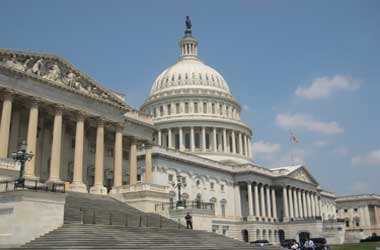
Therefore, today, every state except Hawaii and Utah allow at least some sort of gambling, but each of them has also banned different ones. The states have their own gambling commissions that decide who and where can gamble within its borders, which is why some of the gambling is practised on the ships that cruise outside the state territorial waters.
Interstate and international gambling has been regulated by the Congress, together with the relations among the US and Native American territories where gambling started taking its toll lately.
Online Gambling Laws
In this very confusing system, we can be sure of one thing: no federal law prohibits online gambling. It is legal to place wagers online, but it must be done on a site that is not located in the US. To be on the safe side, before placing any bets, take a minute to reconfirm that the site you chose to play on is based in any other area except the US.
On that account, you won’t have to worry about faking your identity, since most online gambling operators accept American players. Also, international financial institutions have come up with a way to deal with their transactions. However, have in mind that the law is subject to change and make sure you stay up to date with it.
Conclusion
The US gambling market can be perceived as a big puzzle that consists of many small parts, and each of these parts works on its own when it comes to laws and regulations about gambling. Although the situation has changed and keeps changing day by day, it hasn’t yet reached that level that allows you to play games of chance wherever you want in the US.
When it comes to online gambling, the regulations are made mostly for gambling operators and not punters. Yet, to be in the clear wherever you are, it would be smart to double-check the legality of gambling in a specific state before you ask anyone the directions to the nearest casino.

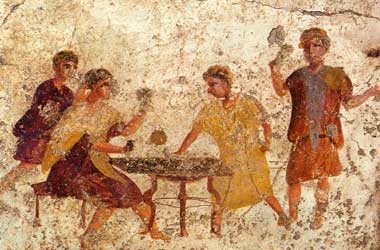 The first form of gambling, according to archaeologists, are dice games, as they have been excavated in North and South America, as well as in Egypt and the Far East.
The first form of gambling, according to archaeologists, are dice games, as they have been excavated in North and South America, as well as in Egypt and the Far East.  Also, a bowl game originated at this time, and it had a different name depending on the tribe that used to play it. It was known as “Hubbub” by the Arapaho and New England tribes, while a variation of it was called “Monshimout” by the Cheyenne.
Also, a bowl game originated at this time, and it had a different name depending on the tribe that used to play it. It was known as “Hubbub” by the Arapaho and New England tribes, while a variation of it was called “Monshimout” by the Cheyenne. The lottery created by King James I of England had been used to provide funds for the first permanent British settlement in North America, and was afterward used for funding the building of roads, towns, schools, and hospitals.
The lottery created by King James I of England had been used to provide funds for the first permanent British settlement in North America, and was afterward used for funding the building of roads, towns, schools, and hospitals.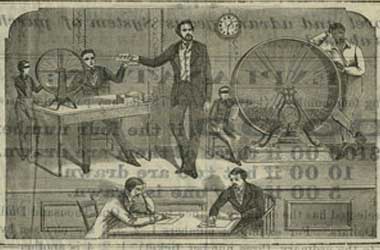 Again, in the 19th century, gambling had been smothered and then brought back to life many times before all the lotteries were officially closed by 1900.
Again, in the 19th century, gambling had been smothered and then brought back to life many times before all the lotteries were officially closed by 1900. 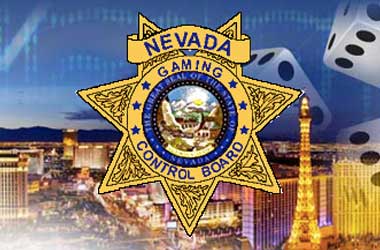 Finally, the Nevada Gaming Control Board was created in 1955, followed by establishing the
Finally, the Nevada Gaming Control Board was created in 1955, followed by establishing the 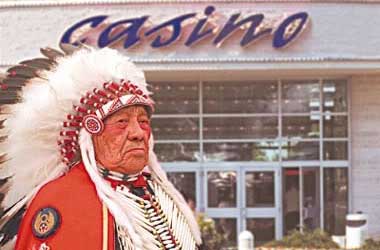 For Native American tribes, this was a crucial moment since they were restricted to gamble before 2000.
For Native American tribes, this was a crucial moment since they were restricted to gamble before 2000.